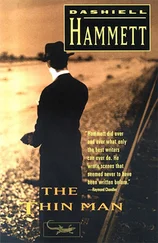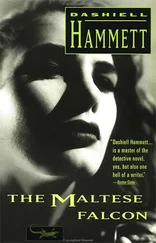Sunset Magazine, October 1925
Margaret Tharp habitually passed from slumber to clear-eyed liveliness without intermediate languor. This morning nothing was unusual in her awakening save the absence of the eight o’clock San Francisco boat’s sad hooting. Across the room the clock’s hands pointed like one long hand to a few minutes past seven. Margaret rolled over beneath the covers, putting her back to the sun-painted west wall, and closed her eyes again.
But drowsiness would not come. She was definitely awake to the morning excitement of the next-door chickens, the hum of an automobile going toward the ferry, the unfamiliar fragrance of magnolia in the breeze tickling her cheek with loose hair-ends. She got up, slid feet into soft slippers, shoulders into bathrobe, and went downstairs to start toast and coffee before dressing.
A fat man in black was on the point of leaving the kitchen.
Margaret cried out, catching the robe to her throat with both hands.
Red and crystal glinted on the hand with which the fat man took off his black derby. Holding the doorknob, he turned to face Margaret. He turned slowly, with the smooth precision of a globe revolving on a fixed axis, and he managed his head with care, as if it balanced an invisible burden.
“You — are — Mrs. — Tharp.”
Sighing puffs of breath spaced his words, cushioned them, gave them the semblance of gems nested separately in raw cotton. He was a man past forty, with opaquely glistening eyes whose blackness was repeated with variety of finish in mustache and hair, freshly ironed suit, and enameled shoes. The dark skin of his face — ball-round over a tight stiff collar — was peculiarly coarse, firm-grained, as if it had been baked. Against this background his tie was half a foot of scarlet flame.
“Your — husband — is — not — home.”
It was no more a question than his naming her had been, but he paused expectantly. Margaret, standing where she had stopped in the passageway between stairs and kitchen, was still too startled not to say “No.”
“You’re — expecting — him.”
There was nothing immediately threatening in the attitude of this man who should not have been in her kitchen but who seemed nowise disconcerted by her finding him there. Margaret’s words came almost easily. “Not just — I expect him, yes, but I don’t know exactly when he will come.”
Black hat and black shoulders, moving together, achieved every appearance of a bow without disturbing round head’s poise.
“You — will — so — kindly — tell — him — when — he — comes — I — am — waiting. I — await — him — at — the — hotel.” The spacing puffs prolonged his sentences interminably, made of his phrases thin-spread word-groups whose meanings were elusive. “You — will — tell — him — Leonidas — Doucas — is — waiting. He — will — know. We — are — friends — very — good — friends. You — will — not — forget — the — name — Leonidas — Doucas.”
“Certainly I shall tell him. But I really do not know when he will come.”
The man who called himself Leonidas Doucas nodded frugally beneath the unseen something his head supported. Darkness of mustache and skin exaggerated whiteness of teeth. His smile went away as stiffly as it came, with as little elasticity.
“You — may — expect — him. He — comes — now.”
He revolved slowly away from her and went out of the kitchen, shutting the door behind him.
Margaret ran tiptoe across the room to twist the key in the door. The lock’s inner mechanism rattled loosely, the bolt would not click home. The warmly sweet fragrance of magnolia enveloped her. She gave up the struggle with the broken lock and dropped down on a chair beside the door. Points of dampness were on her back. Under gown and robe her legs were cold. Doucas, not the breeze, had brought the breath of magnolia to her in bed. His unguessed presence in the bedroom had wakened her. He had been up there looking with his surface-shining eyes for Guy. If Guy had been home, asleep beside her? A picture came of Doucas bending over the bed, his head still stiffly upright, a bright blade in his jeweled fist. She shivered.
Then she laughed. Little silly! How conceivably could Guy — her hard-bodied, hard-nerved Guy, to whom violence was no more than addition to a bookkeeper — be harmed by a perfumed, asthmatic fat man? Whether Guy slept or Guy woke, if Doucas came as an enemy, then so much the worse for Doucas — a fleshbound house dog growling at her red wolf of a husband!
She jumped up from her chair and began to bustle with toaster and coffeepot. Leonidas Doucas was put out of her mind by the news he had brought. Guy was coming home. The fat man in black had said so, speaking with assurance. Guy was coming home to fill the house with boisterous laughter, shouted blasphemies, tales of lawlessness in strangely named places; with the odors of tobacco and liquor; with odds and ends of rover’s equipment that never could be confined to closet or room, but overflowed to litter the house from roof to cellar. Cartridges would roll underfoot; boots and belts would turn up in unexpected places; cigars, cigar ends, cigar ashes would be everywhere; empty bottles, likely as not, would get to the front porch to scandalize the neighbors.
Guy was coming home and there were so many things to be done in so small a house; windows and pictures and woodwork to be washed, furniture and floors to be polished, curtains to be hung, rugs to be cleaned. If only he did not come for two days, or even three.
The rubber gloves she had put aside as nuisances — had she put them in the hall closet or upstairs? She must find them. So much scrubbing to do, and her hands must not be rough for Guy. She frowned at the small hand raising toast to her mouth, accused it of roughness. She would have to get another bottle of lotion. If there was time after she finished her work, she might run over to the city for an afternoon. But first the house must be made bright and tidy, so Guy could tweak a stiff curtain and laugh, “A damned dainty nest for a bull like me to be stabled in!”
And perhaps tell of the month he had shared a Rat Island hut with two vermin-live Siwashes, sleeping three abed because their blankets were too few for division.
The two days Margaret had desired went by without Guy, another, others. Her habit of sleeping until the eight o’clock boat whistled up the hill was broken. She was dressed and moving around the house by seven, six, five-thirty one morning, repolishing already glowing fixtures, laundering some thing slightly soiled by yesterday’s use, fussing through her rooms ceaselessly, meticulously, happily.
Whenever she passed the hotel on her way to the stores in lower Water Street she saw Doucas. Usually he was in the glass-fronted lobby, upright in the largest chair, facing the street, round, black-clothed, motionless.
Once he came out of the hotel as she passed.
He looked neither at her nor away from her, neither claimed recognition nor avoided it. Margaret smiled pleasantly, nodded pleasantly, and went on down the street away from his hat raised in a jeweled hand, her small head high. The fragrance of magnolia, going a dozen steps with her, deepened her feeling of somewhat amused, though lenient, graciousness.
The same high-held kindliness went with her through the streets, into the shops, to call on Dora Milner, to her own street door to welcome Agnes Peppier and Helen Chase. She made proud sentences for herself while she spoke other sentences, or listened to them. Guy moves among continents as easily as Tom Milner from drug counter to soda fountain , she thought while Dora talked of guest-room linen. He carries his life as carelessly in his hands as Ned Peppier his brief case , she boasted to the tea she poured for Agnes and Helen, and sells his daring as Paul Chase sells high-grade corner lots .
Читать дальше












